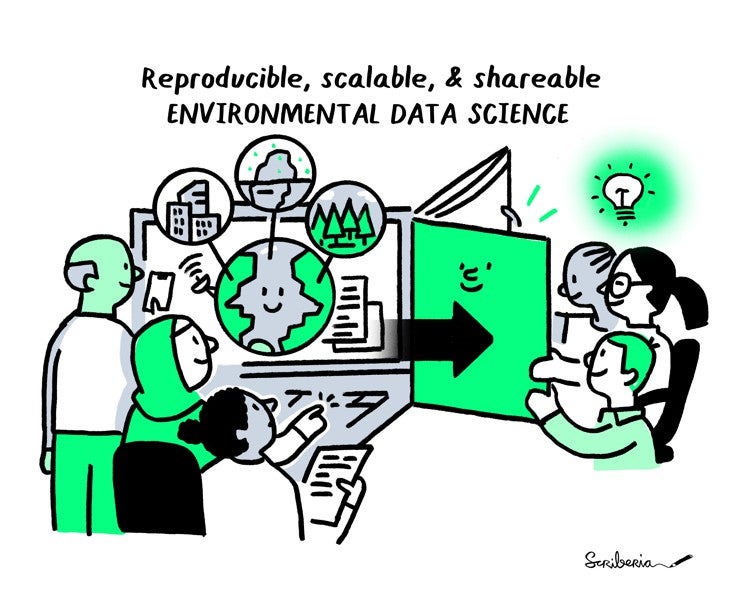
ATM 298- Environmental Data Science is a graduate group study course that aims to introduce environmental science graduate students to recent developments in the analysis, visualization and modeling of Earth system and environmental science data using the R and/or Python languages. This course will focus on large datasets with high-dimension (time, latitude, longitude, vertical levels, additional channels) and high-resolution that are considered “big data”. You will learn how to set up a GitHub repository and to version control and properly document your code. You also learn how to read, write and manipulate various types of Earth system and environmental science data (including Earth system model output). You will train on a range of statistical analysis methods and visualization techniques and you will be introduced to basic machine learning modeling.
is an interactive course that explores contemporary environmental issues by examining the causes, effects and solutions to a wide range of environmental problems facing the global ecosystem. Integrated discussion of political, societal and economic impact linkages with environmental problems.
Topics covered:
- Introduction to R/Python and Earth system data
- Installation of RStudio/Jupyter
- Earth system and environmental data formats/sources
- Introduction to version control and reproducibility issues (intro to Github)
- Reading, writing and manipulating Earth system and environmental data
- Statistical analysis
- Data visualization tools
- Mapping and geospatial techniques
- Intro to machine learning
Documents: General Syllabus